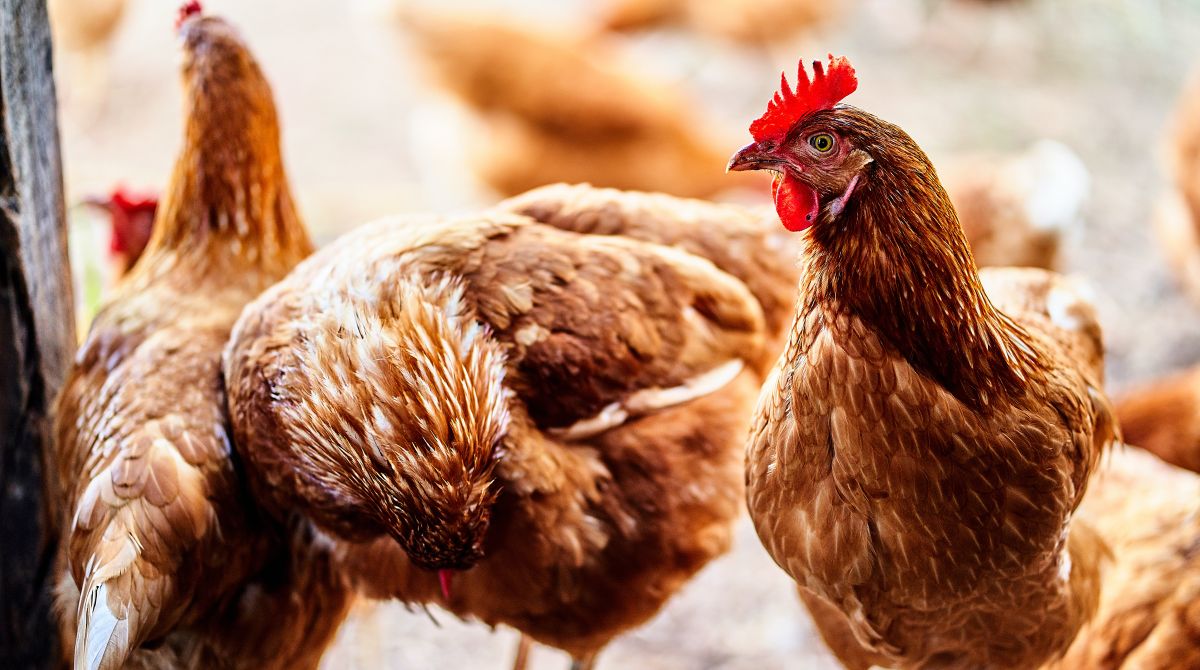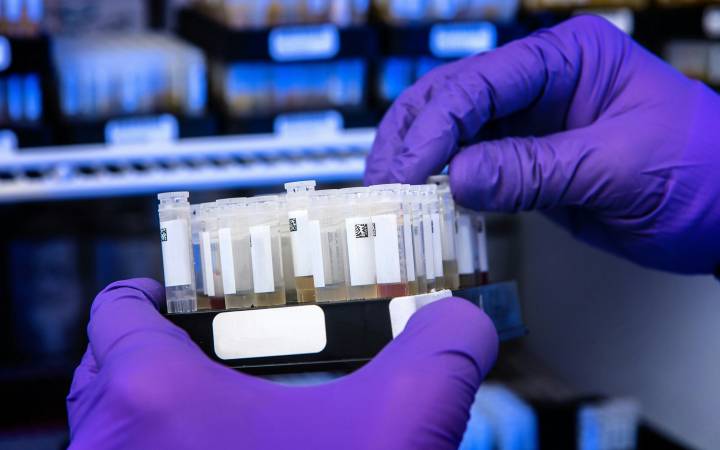Impact of bird flu is a potential risk to UK economy and could cause impact on Christmas food supply, Kingston University microbiology expert says
Posted Monday 7 November 2022
 The strength and widespread nature of the current bird flu strain could cause a food supply shortage for Christmas of meats like chicken, turkey and duck, according to a medical microbiology expert from Kingston University.
The strength and widespread nature of the current bird flu strain could cause a food supply shortage for Christmas of meats like chicken, turkey and duck, according to a medical microbiology expert from Kingston University.
The largest ever bird flu outbreak has hit England, with hundreds of cases being identified within the last year and more than 5.5 million birds dead or culled since October 2021 – with both figures set to rise significantly in the next few months. The UK Government has announced all poultry and captive birds must be kept indoors from Monday 7 November to combat the spread.
Kingston University Professor of Medical Microbiology Mark Fielder explains why the current strain is so contagious, how best to control the spread and the effect the outbreak is having on farmers, retailers and the UK economy.
"This specific strain of avian flu emerged last year and unusually it hasn't really gone away. As it doesn't seem to be disappearing, it's proving particularly problematic," Professor Fielder said, reflecting on the current H5N1 strain of influenza circulating in birds. "It is an effective pathogen (disease causing agent), as we've seen a lot of sea birds and migratory birds dying and now it's expanded into the pheasant population. It's also capable of killing poultry such as chickens and turkeys, which could potentially cause issues around food availability – particularly in the run up to Christmas."
The strain is highly pathogenic, which means the virus can cause significant illness to, and quite often kill, the birds affected. "Because it's an airborne virus it can readily spread by close contact. Due to natural migration of birds globally, the disease has spread as birds make stops along their migratory routes and perhaps feed or drink from the same places as domestic birds. The virus has then travelled along migration paths which include United Kingdom and this is why we're seeing such a large outbreak in England right now, particularly in the Norfolk and Suffolk area."
Impact on the food supply chain
Professor Fielder said the outbreak has potential to impact on food supply, with commodities such as chicken, duck, goose, turkey meat and eggs at threat. "The impact on the British national flock is likely to hit the incomes of farmers, who particularly rely on the demand for these meats up to and over the festive period. The situation is also affecting the game bird industry and unfortunately, because the outbreak is so widespread, farmers currently have challenges claiming compensation so it's a difficult time for the farming community."
What actions have already been taken?
The government is hoping to combat the spread after it announced a lockdown for all poultry and captive birds – measures Professor Fielder believes will help. "In the main hotspots, like the east coast of England, there have already been avian influenza protection zones put in place which means you can't move birds in or out of a certain radius – they have also introduced mandatory housing flocks to minimise exposure. The national prevention method will ensure all captive birds are under housing and kept apart from wild birds – it's almost like social distancing for birds and although it's not a solution, it will certainly help protect our national flock and parts of our economy," he said.
What further measures could be implemented?
"One thing we might see going forward is the vaccination of commercial flocks, captive birds and show animals. It's obviously not an easy thing to do and it has a cost implication but is one possible way to address the spread. What we're trying to do is minimise the chances of avian flu becoming an endemic disease, which means it is permanently here – we are not at stage yet but it's not to say it might not happen in the future."
How can the public help minimise spread?
As it currently stands, the disease can't be passed onto humans but Professor Fielder has urged the public to take precautions, where possible. "If you find a dead bird or one in distress, don't touch it and instead report to Defra with a time, location and, if you know it, the species. If you feed birds in your garden make sure you wash your hands thoroughly after you've tended to the feeder or bird table. Finally, if you do keep birds as pets, including chickens, finches or even a domestic budgerigar, make sure you keep them at home for the foreseeable future – it's all about keeping us apart from the virus as well as we possibly can," he said.
- Find out more about avian influenza and how to report it.
Contact us
General enquiries:
Journalists only:
- Communications team
Tel: +44 (0)20 8417 3034
Email us



